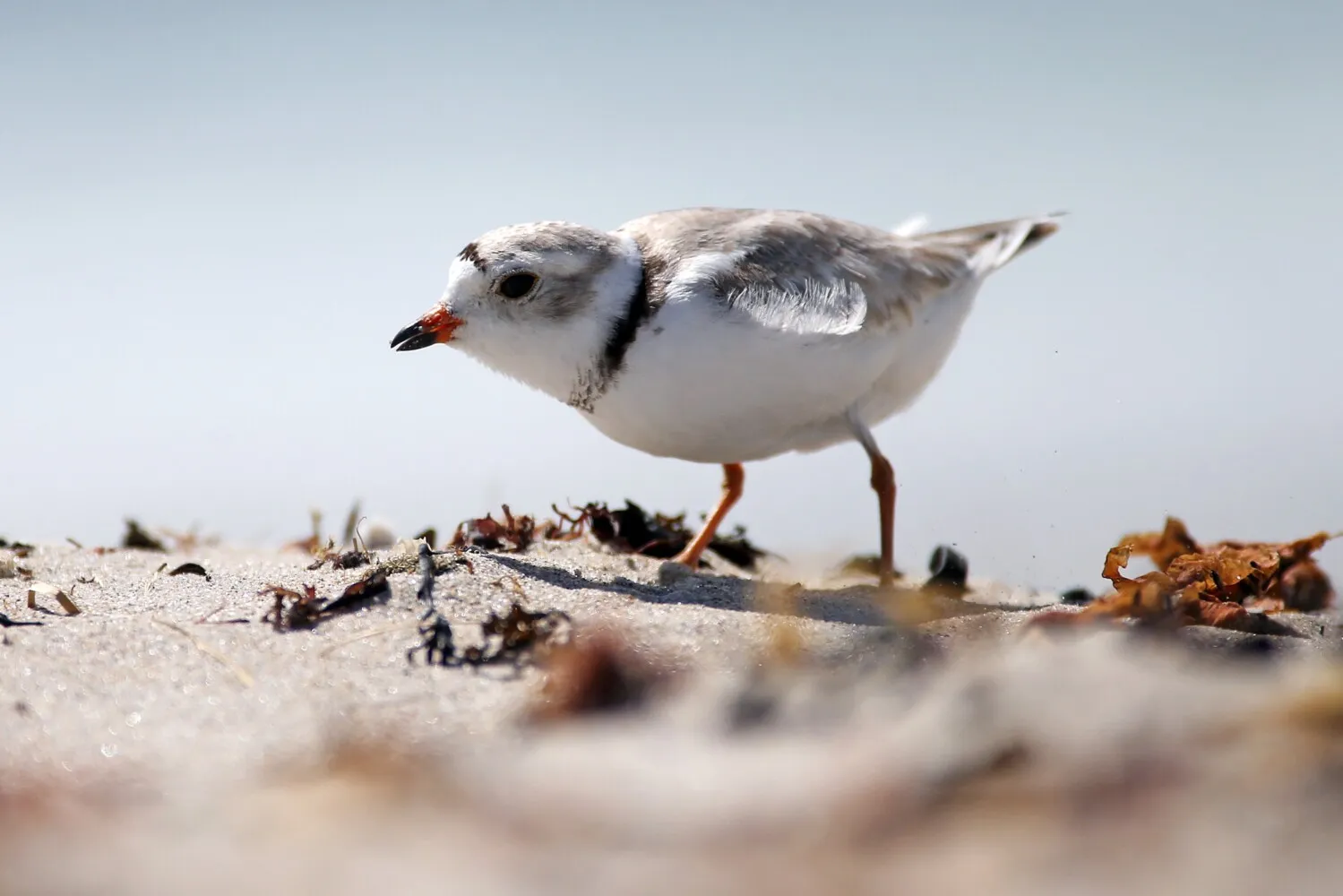Piping plovers, small shorebirds known for their resilience and distinctive nesting habits, have made a return to Maine’s sandy beaches. Despite their comeback, these birds remain classified as a threatened species, prompting ongoing efforts to safeguard their habitats and ensure their survival.
According to Laura Minich Zitske, a wildlife biologist at the Maine Audubon Society, piping plovers exhibit remarkable adaptability, allowing them to thrive in beach environments characterized by shifting sands. From North Carolina to Canada, these birds nest along the coast, with Maine hosting nesting sites stretching from Ogunquit Beach to Reid State Park in Georgetown.
While federally designated as a threatened species under the Endangered Species Act, piping plovers in Maine hold an even more critical status as an endangered species, affording them dual protection under both federal and state laws. This distinction underscores the importance of conservation efforts aimed at mitigating threats to their survival.
Among the primary risks faced by piping plovers are human and pet interference, as well as predation by natural threats like crows, foxes, and gulls. Despite these challenges, the birds’ remarkable camouflage abilities have historically aided in their survival, allowing them to blend seamlessly into their surroundings.
To safeguard nesting sites and minimize disruptions, conservationists urge beachgoers to adhere to restricted areas marked with signage, particularly at locations like Higgins Beach, where piping plovers nest. By respecting these boundaries and ensuring that pets remain out of restricted areas, individuals can play a crucial role in protecting the habitats of these vulnerable birds.
Volunteer efforts also play a significant role in piping plover conservation, with dedicated individuals monitoring beaches from sunrise to sunset. Their vigilance helps prevent disturbances to nesting sites and ensures that protective measures are effectively enforced.
Maine resident Juliana Post commended the dedication of these volunteers and highlighted the positive response from pet owners who cooperate with restrictions to safeguard piping plover habitats. By working together, communities can contribute to the preservation of these iconic shorebirds and their delicate coastal ecosystems.
In conclusion, while piping plovers have returned to Maine’s beaches, their status as a threatened species underscores the ongoing need for conservation efforts and public awareness to protect their nesting sites and ensure their long-term survival in the region’s coastal habitats.















































